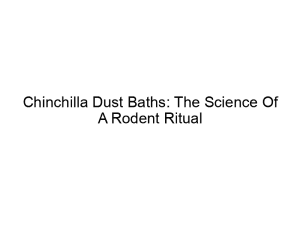Are hedgehogs good pets? This question sparks curiosity in many potential pet owners. This comprehensive guide explores the realities of hedgehog ownership, weighing the advantages and disadvantages to help you decide if this unique creature is right for you. We’ll delve into hedgehog care, their personalities, and the commitment involved, providing you with the information you need to make an informed choice. You’ll learn about their dietary needs, housing requirements, and potential health issues, ensuring you’re fully prepared for the responsibilities of hedgehog ownership. Let’s embark on this journey together to determine if a hedgehog is the perfect addition to your family.
Hedgehogs are small, spiny mammals belonging to the Erinaceinae subfamily. Native to Europe, Asia, and Africa, they’re known for their distinctive quills, which are modified hairs used for defense
against predators. As pets, they’re becoming increasingly popular due to their relatively low-maintenance nature (compared to some other exotic pets) and unique personalities. However, it’s crucial to understand their specific needs before bringing one home.
Why Hedgehogs are Unique Pets
Unlike dogs or cats, hedgehogs are crepuscular, meaning they’re most active during dawn and dusk. They’re solitary creatures, preferring their own space, which can make them a good choice for individuals living alone or those with limited time for intense pet interaction. Their quirky habits and independent nature are part of their charm, but this also means they won’t be cuddly lap pets in the same way as a cat or dog. Understanding this aspect is crucial for responsible ownership.
The Pros of Owning a Hedgehog
Low Maintenance (Relatively Speaking)
Compared to dogs or cats, hedgehogs require less direct attention. They don’t need daily walks or constant playtime. While their enclosure needs regular cleaning, their overall care is less demanding than other pets. However, it’s essential to note that this “low maintenance” is relative; they still require careful attention to their diet, housing, and health.
Unique and Fascinating Pets
Hedgehogs offer a unique pet-owning experience. Watching them explore their enclosure, snuffle for food, and curl into a ball when startled is endlessly entertaining. Their distinctive appearance and quirky behaviors make them captivating companions for those seeking a less conventional pet.
Quiet and Clean (Mostly)
Hedgehogs are generally quiet creatures. Their primary sounds are gentle snuffling and occasional squeaking. They’re also relatively clean pets, confining their waste to their designated litter box area. However, their scent glands can sometimes produce a musky odor, requiring regular cleaning of their enclosure and occasional bathing.
The Cons of Owning a Hedgehog
Nocturnal Behavior
Their crepuscular nature means they are most active at dawn and dusk, often sleeping during the day. This can be inconvenient for some owners, particularly those who prefer interacting with their pets during the evening. If you have a busy daytime schedule, a hedgehog’s sleep pattern might not align well with yours.
Specific Dietary Needs
Hedgehogs have specific dietary requirements. They need a diet rich in insects and specialized hedgehog food, avoiding foods that are toxic to them (like avocados, onions, or chocolate). Providing the correct nutrition is crucial for their health and well-being. Improper nutrition can lead to serious health problems.
Potential Health Issues
Like any pet, hedgehogs are prone to certain health issues. They can suffer from various conditions, including obesity, dental problems, and skin infections. Finding a veterinarian experienced with exotic animals is essential for their proper healthcare.
Hedgehog Housing and Care
Setting up the Enclosure
A spacious indoor enclosure is crucial. Wire cages are not recommended due to the risk of injury to their feet. Solid-bottom cages with plenty of bedding (such as paper bedding or aspen shavings) provide a comfortable environment. The enclosure needs to be large enough to allow for exercise and exploration, including hiding places and enrichment items.
Feeding Your Hedgehog
A hedgehog’s diet should consist primarily of high-quality commercial hedgehog food supplemented with insects like mealworms and crickets (ensure they are gut-loaded for optimal nutrition). Avoid feeding them table scraps or human food. Fresh water should always be available in a sipper bottle to prevent spillage and keep the enclosure clean.
Cleaning and Hygiene
Regular cleaning of the enclosure is vital to maintain hygiene and prevent the buildup of ammonia and bacteria. Spot clean daily, removing any soiled bedding and feces. A complete cage cleaning should be conducted at least once a week to ensure a healthy and odor-free environment for your hedgehog.
Hedgehog Handling and Interaction
Gentle Handling Techniques
Hedgehogs can be surprisingly independent and might not always appreciate being held. Always approach them gently and slowly, allowing them to acclimate to your presence. Support their body weight while holding them to avoid injury. Avoid startling them or making sudden movements.
Enrichment and Play
Providing environmental enrichment is essential for a hedgehog’s mental and physical well-being. Include toys such as small balls, tunnels, and hiding places in their enclosure. Supervised playtime outside their cage can also provide stimulation, but always ensure a safe and escape-proof environment.
Socialization and Bonding
Hedgehogs are generally solitary animals, and excessive handling can stress them. While bonding is possible, it’s important to respect their individual needs and preferences. Forceful handling or excessive interaction can negatively impact their welfare.
Legal and Ethical Considerations
Laws Regarding Hedgehog Ownership
Laws regarding hedgehog ownership vary by location. Some areas may have restrictions or require permits to own exotic animals. It is essential to research your local laws and regulations before acquiring a hedgehog to ensure you’re complying with all legal requirements.
Responsible Breeding Practices
Supporting responsible breeders is crucial for the welfare of hedgehogs. Reputable breeders prioritize the health and well-being of their animals, providing proper care and conducting necessary health checks. Avoid purchasing hedgehogs from irresponsible sources that may not provide adequate care or engage in unethical breeding practices.
Understanding Hedgehog Behavior
Hedgehogs exhibit unique behaviors such as self-anointing, where they spread saliva onto their quills. This behavior is normal and shouldn’t cause concern. Understanding these natural behaviors can help you appreciate your hedgehog’s individuality and ensure you’re providing a suitable environment.
Comparing Hedgehogs to Other Small Pets
Hedgehogs vs. Rabbits
Rabbits require more space and attention than hedgehogs. They’re social animals and need companionship, unlike the solitary nature of hedgehogs. Rabbits are also more active and require more exercise and playtime.
Hedgehogs vs. Guinea Pigs
Guinea pigs are social and require companionship. They need more interaction than hedgehogs and have a higher demand for space. Their dietary needs also differ significantly from those of hedgehogs.
Hedgehogs vs. Ferrets
Ferrets are more active and playful than hedgehogs. They require more interaction and attention, including playtime and training. Their musky odor can also be more pronounced compared to that of hedgehogs.
Finding a Hedgehog and Veterinarian Care
Locating a Reputable Breeder
Finding a reputable breeder is crucial. Look for breeders who prioritize the health and well-being of their hedgehogs, provide proper care, and conduct health checks. Ask about the parents’ health history and the hedgehog’s socialization. Avoid breeders who seem unconcerned about their animals’ welfare or who sell hedgehogs through online marketplaces without proper screening.
Choosing a Hedgehog
When choosing a hedgehog, observe its behavior. A healthy hedgehog will be alert, active, and have clean quills and eyes. Avoid hedgehogs that appear lethargic, have matted fur, or exhibit any signs of illness. Handle the hedgehog gently to assess its temperament and comfort level.
Finding an Exotic Animal Veterinarian
Finding a veterinarian experienced with exotic animals is essential. Hedgehogs have specific needs, and a regular vet may not be equipped to handle their unique health issues. Look for veterinarians who have specific experience with hedgehogs or other small mammals. This is crucial for preventative care and managing any potential health problems.
Frequently Asked Questions
What is the lifespan of a hedgehog?
The average lifespan of a pet hedgehog is 5-8 years, although some can live longer with proper care.
Are hedgehogs hypoallergenic?
No, hedgehogs are not hypoallergenic. While they don’t shed fur in the same way as cats or dogs, they can still trigger allergies in some people.
Do hedgehogs bite?
Hedgehogs can bite if they feel threatened or scared. Gentle and respectful handling is crucial to prevent biting. Proper socialization from a young age can also reduce the likelihood of biting.
Can hedgehogs be left alone for extended periods?
While hedgehogs are relatively independent, they still need regular care and interaction. Leaving them alone for extended periods (days) is generally not recommended without appropriate care arrangements.
What are the signs of a sick hedgehog?
Signs of a sick hedgehog include lethargy, loss of appetite, weight loss, respiratory issues, skin problems, and changes in bowel movements. Consult a veterinarian immediately if you notice any changes in your hedgehog’s health.
What kind of bedding is best for a hedgehog?
Paper-based bedding or aspen shavings are good options. Avoid cedar or pine shavings, as they can be toxic to hedgehogs.
How often should I bathe my hedgehog?
Hedgehogs rarely need bathing. Only bathe them if they are exceptionally dirty. Use a pet-safe shampoo formulated for small animals and ensure they are thoroughly dried afterward.
Final Thoughts
Deciding whether or not to own a hedgehog requires careful consideration of their unique needs and characteristics. While they offer a fascinating and relatively low-maintenance pet-owning experience, they’re not suitable for everyone. Their nocturnal nature, specific dietary requirements, and potential health issues require commitment and diligent care. Thorough research and understanding of their needs are paramount before bringing a hedgehog into your home. If you’re prepared to dedicate yourself to their unique care and can provide a stimulating and enriching environment, a hedgehog can be a rewarding and captivating companion. Remember to always consult a veterinarian experienced with exotic animals for guidance on their health and well-being.
Before you take the leap, consider all aspects of hedgehog ownership carefully. Their unique nature demands a responsible and committed owner. Are you ready to provide the specialized care they need to thrive? If so, the joy of sharing your life with this spiny little creature can be immense.




